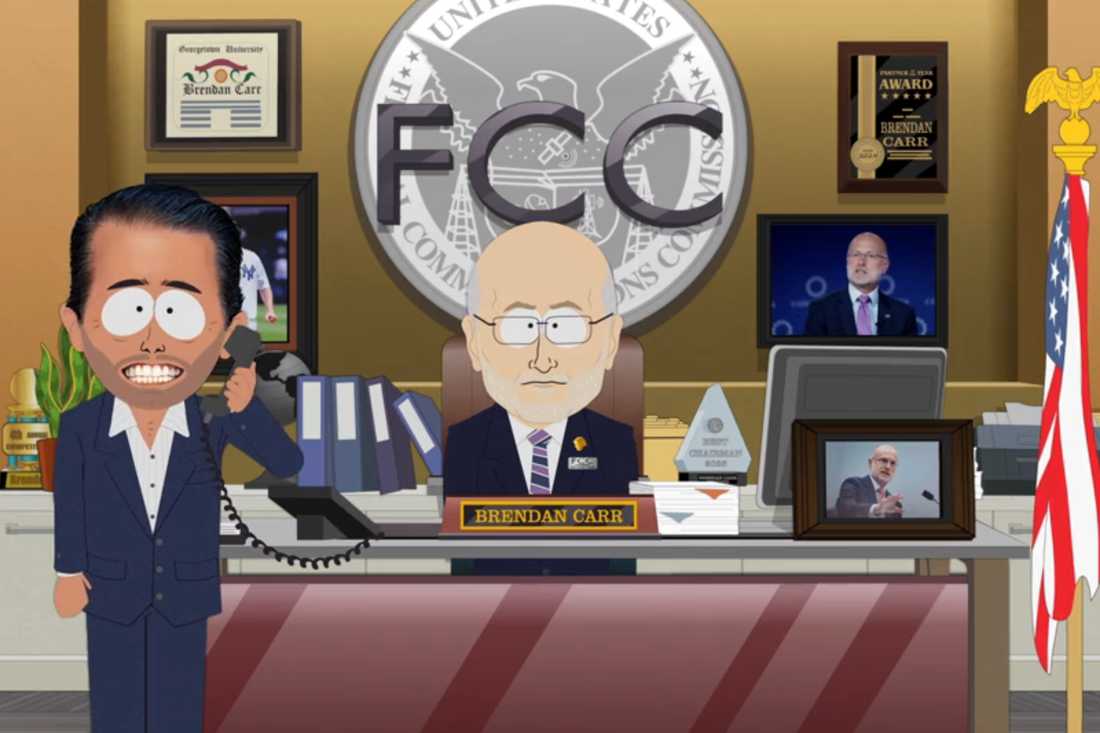
I watched two episodes of *South Park* this week, something I rarely do for regular, non-event TV. Tuesday was Jimmy Kimmel’s return to his show, and Wednesday was a new *South Park* episode that everyone was talking about. The show had recently gained attention for its sharp criticism of the Trump administration, but found itself in a difficult situation after the death of Charlie Kirk, a conservative activist. An earlier episode had satirized Kirk, and while he initially embraced the joke, the network pulled the episode from broadcast after his death, citing sensitivity. This decision felt like a form of self-censorship.
With the recent controversy surrounding Jimmy Kimmel’s suspension and concerns about increasing censorship, the delay of this week’s episode raised questions about whether *South Park* was hesitating to be as provocative as usual. It was unsettling to think that even this famously fearless show, known for mocking everyone and everything, might be feeling the pressure to pull back.
Contrary to earlier expectations, last night’s *South Park* episode, “Conflict of Interest,” continued the show’s tradition of tackling current events. Following its previous focus on collectible toys, the episode centered around the children of South Park Elementary becoming obsessed with a prediction app. This app then became a surprising way to address the Israel-Gaza conflict. Kyle, the only Jewish character in the main group, was upset to find classmates betting on whether his mother would take military action against Gaza, specifically targeting a Palestinian hospital – a highly unlikely bet. The situation quickly worsened, culminating in Kyle’s mother traveling to Israel to directly confront Benjamin Netanyahu, accusing him of using Judaism as a shield for his actions and the deaths of thousands. Despite the episode being delayed, it stayed true to the show’s style. Any worries that *South Park* was becoming less willing to push boundaries were dismissed, as the episode boldly addressed a very sensitive topic, which many viewers saw as a clear statement of support for Palestine.
President Trump still appears in the show, mainly in a secondary storyline. Satan is still pregnant with their child, but in the latest episode, Trump tries to cause a miscarriage because he doesn’t want the responsibility of being a father. (Despite already having several children, including Donald Jr., who is portrayed as unintelligent and obedient.) The episode also includes current events commentary: Brendan Carr, the FCC chair who tried to get the show cancelled, suffers consequences due to Trump’s scheme. By the end, Carr is hospitalized and severely unwell, while Vice-President J.D. Vance threatens him for accidentally disrupting Trump’s plan, as Vance wants to stay next in line for the presidency. (The child would eventually replace Vance.)
While “Conflict of Interest” was interesting and surprisingly critical of Israel, it ultimately felt like a typical *South Park* episode. What was remarkable was the excitement surrounding its release – a feeling similar to the anticipation for Jimmy Kimmel’s return to television. Like many viewers, I watched on Tuesday, curious to see how Kimmel would address the situation. He needed to strike a balance between acknowledging the issue and defending the show’s position. His return monologue was generally well-received, though predictably criticized by some on the right. Despite a boycott that prevented the show from airing in about a quarter of homes, Kimmel’s return achieved record ratings, and the monologue quickly gained over 20 million views online. For a brief moment, it felt like everyone was having the same conversation about these two programs, which, in today’s media landscape, feels a bit unusual.
This situation highlights a concerning trend. Two established television programs – one with a seasoned late-night host, the other known for tackling controversial topics – are now at the center of debates about censorship. The tension isn’t just about the specific content being discussed, but about the fact that these shows have been around for so long that they’ve become deeply ingrained in our culture. These conflicts feel particularly significant because many of our established institutions are currently facing challenges and changes, and we aren’t seeing new ones emerge to take their place. While options like podcasts or streaming shows exist for individual hosts, as some have suggested, the core issue is that neither a president nor corporate decisions should control what can be broadcast.
The recent buzz also highlights a bigger issue: today’s media landscape struggles to create shows that truly unite people and spark widespread conversation. Right now, shows like *Jimmy Kimmel Live!* and *South Park* – remnants of a time when everyone watched the same things – are carrying the weight of that shared experience, and *Saturday Night Live* will likely do the same when it returns. However, these moments of collective attention are brief and feel more like illusions than real revivals. It seems the only time we have a shared culture is during crises – when something causes a widespread reaction, like a protest or major world event. Once those moments pass, audiences drift apart, conversations fragment, and that feeling of unity disappears. This leaves many wondering if we’ll ever find something that can bring us together again.
Read More
- Tom Cruise? Harrison Ford? People Are Arguing About Which Actor Had The Best 7-Year Run, And I Can’t Decide Who’s Right
- How to Complete the Behemoth Guardian Project in Infinity Nikki
- Gold Rate Forecast
- ‘Stranger Things’ Conformity Gate and 9th Episode Fan Theory, Explained
- Fate of ‘The Pitt’ Revealed Quickly Following Season 2 Premiere
- Brent Oil Forecast
- What If Karlach Had a Miss Piggy Meltdown?
- Mario Tennis Fever Release Date, Gameplay, Story
- Katanire’s Yae Miko Cosplay: Genshin Impact Masterpiece
- What time is Idol I Episode 7 & 8 on Netflix? K-drama release schedule
2025-09-25 23:56